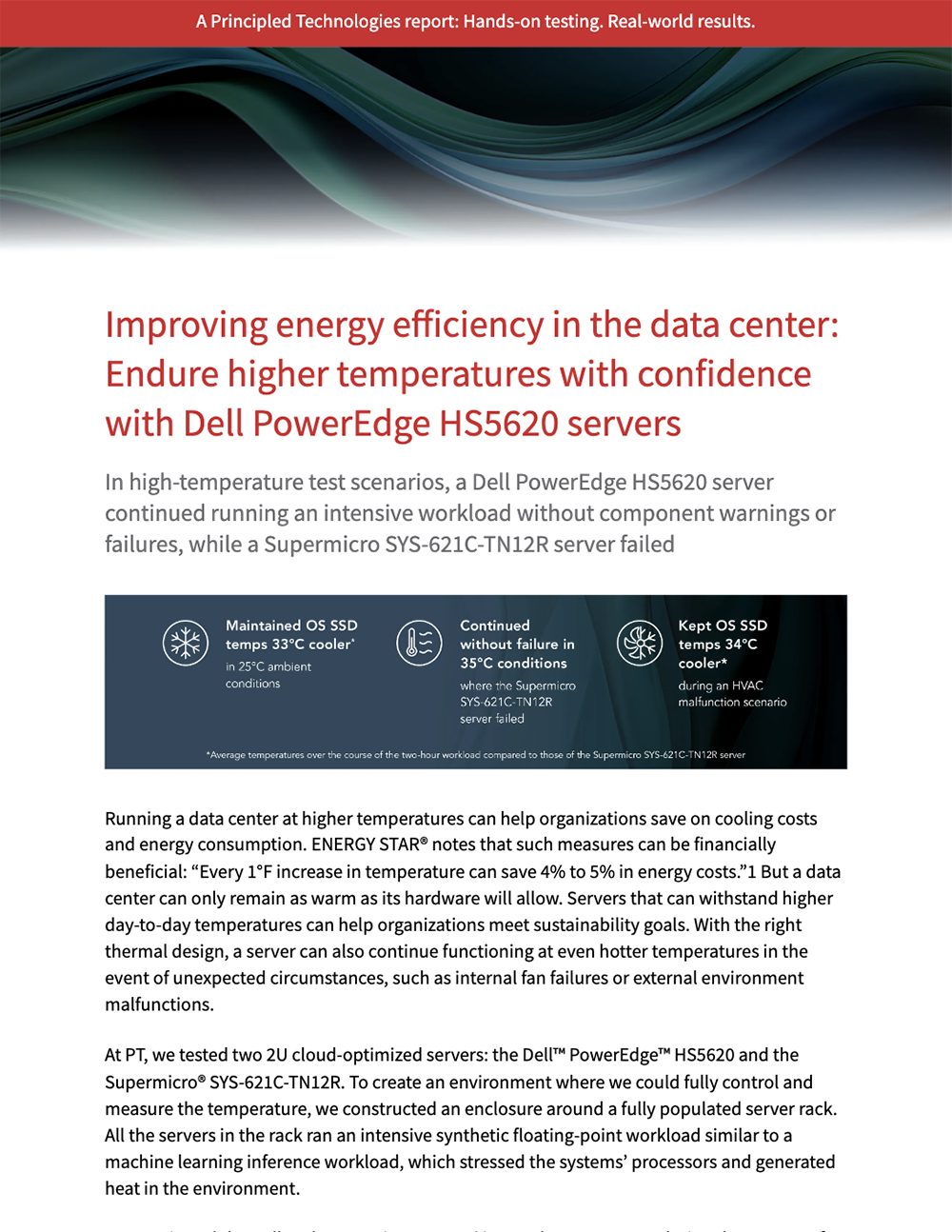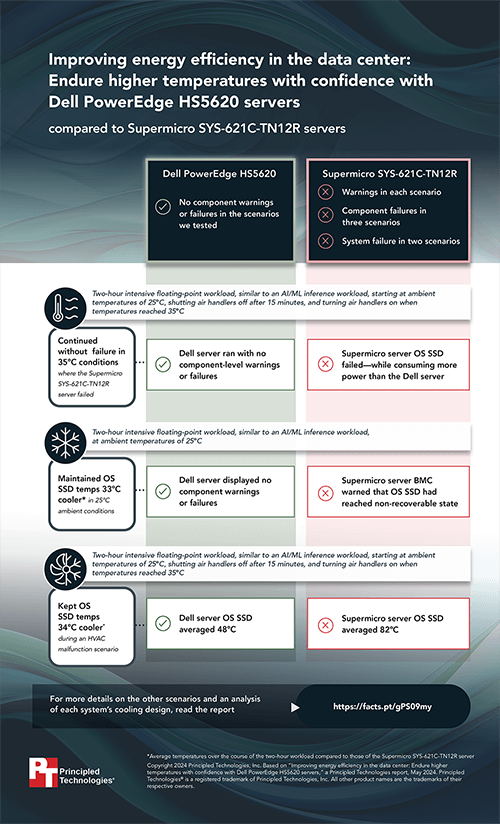
Data centers power an enormous chunk of the modern economy, and the people who design and manage those data centers must often balance the competing demands of hardware performance, cost management, and energy conservation. One way to improve energy efficiency and save money on cooling costs is to run a data center at higher temperatures. However, a data center can only remain as warm as its hardware can run without compromising performance. With servers that can handle higher everyday temperatures—as well as high temperatures due to unforeseen circumstances—businesses can work toward their sustainability goals while continuing to deliver the level of performance their clients require.
We tested two cloud-optimized servers—the Dell PowerEdge HS5620 and the Supermicro SYS-621C-TN12R—to see how they performed in three scenarios: ambient temperatures of 25°C, an internal fan failure, and a data center HVAC malfunction. To ensure that we could control and measure ambient temperature, we built a custom enclosure around a fully populated server rack. During testing, we placed the Dell and Supermicro systems in the middle of the rack in the same position while they ran an intensive synthetic floating-point workload, which stressed the systems’ processors and generated heat.
During each test scenario, we monitored the temperature of the Dell and Supermicro servers’ internal components. In those tests, the Dell system did not experience any component heat warnings or failures. In contrast, the Supermicro system yielded warnings in each scenario and component failures in the second and third scenarios, resulting in system downtime that required manual intervention.
When we analyzed each system, we found that the design of the Dell server’s motherboard layout, fans, and chassis offered thermal management advantages over the Supermicro server. Those design advantages helped the Dell system to consistently maintain cooler component temperatures than the Supermicro system—up to 34 °C cooler for the OS SSD during the HVAC malfunction scenario.
These results indicate the Dell PowerEdge HS5620 is a strong contender to take on higher data center temperatures, even during demanding operations, and avoid unexpected malfunctions due to heat.
To learn more about our Dell and Supermicro server thermal tests, check out the report and infographic below.
Principled Technologies is more than a name: Those two words power all we do. Our principles are our north star, determining the way we work with you, treat our staff, and run our business. And in every area, technologies drive our business, inspire us to innovate, and remind us that new approaches are always possible.







